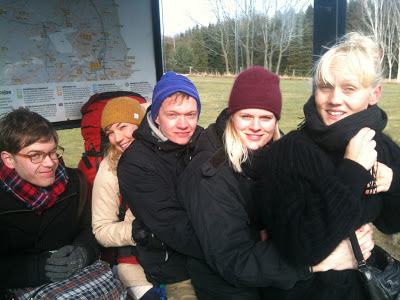In HBO's Togetherness, Brett has also misplaced his. A father of two young kids and a saccharine but somewhat distant husband, Brett finds his life somewhat lackluster. He's a sound editor for the movies, and watching his friend Alex and sister-in-law Tina struggle financially has lulled him into inertia. In the first season, a memorable scene features him throwing a bit of a tantrum during a long film editing session because he's hungry (but really because the director doesn't like his attempt at some original sound-mixing). As Alex's career takes off in the second season, and after a brief confession of infidelity by Brett's wife blindsides him, Brett spins out in desperation; to cope with the news he follows Alex on a convalescent pilgrimage to their hometown of Detroit. There, they fall into the typical regression into boyhood, but it's fruitful thanks to a dug-up time capsule that contains a letter from teenage Brett and Alex to their adult selves. In it, they beg their future selves not to "be lulled into a mediocrity like everyone else and to remember our vow to stay true to the spirit of life." It's a majestic scene that contends with something so essential; the worry that in adulthood, we fork ourselves over to our numbing responsibilities.
Regressing means thrift store suits
Despite its naivete, the core of their adolescent wish resonates with me--someone who's seen their interests morph over time. Five years ago, film and culture dictated my passionate disposition and geographic location, but now I find myself less enthusiastic about those things -- so is the question that the core of me is muted, or has it merely changed? On the one hand, I'm nostalgic for the days I thought I knew what I loved. On the other, I think maybe I should accept that interests evolve but don't have to segment into disconnected pieces. Maybe my desire for pop culture informs my job in social media, which informs certain social justice leanings.
More recently, though, I think I've been conflating complacency with fear, and that's where it gets perilous. As a fascist presidential candidate gets more and more amplified thanks to our 24/7 news cycle, I wonder if I'm being paranoid, thinking that being complacent means I'm part of the problem, as a propagator and consumer of mass media. Am I a bystander of this terrifying political climate, or are my media habits actually doing some harm? Furthermore, have I lost all perspective on my core by being so exposed to media, something I've always been interested in?
Maybe it's a matter of rewatching Mr. Robot to assuage my guilty conscience.





